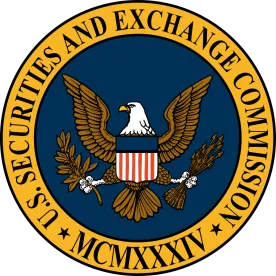Due to the unprecedented Coronavirus Disease 2019 (COVID-19) pandemic, the Securities and Exchange Commission (SEC) has issued relief to investment companies and investment advisers from certain requirements under both the Investment Company Act of 1940, as amended (the 1940 Act), and the Investment Advisers Act of 1940, as amended (the Advisers Act). The relief issued for investment companies has thus far included (i) exemption from the requirement that certain votes by investment company boards be cast in person1, (ii) relief from timely filing Forms N-CEN and N-PORT2, (iii) relief from requirements to transmit timely annual and semi-annual reports to shareholders3, and (iv) relief from timely prospectus delivery requirements for additional share purchases by current shareholders of an investment company4. The SEC also issued an order5 permitting open-end funds and separate accounts to (i) borrow from an affiliated person, (ii) enter into certain interfund lending arrangements, and (iii) to deviate from their fundamental policies to engage in certain borrowing in order to meet redemption requests. The SEC staff has also issued no-action letters6 permitting affiliated purchases of debt securities so funds can have more liquidity to meet redemptions. Finally, the SEC staff has offered guidance on funds’ continuing disclosure obligations during the pandemic7.
In-Person Meeting Requirement - Under the 1940 Act and the rules thereunder, many important votes cast by investment company boards must be conducted in person. These include votes for the (i) approval or renewal of investment advisory (or sub-advisory) agreements, (ii) approval of certain temporary advisory agreements, (iii) approval of an investment company’s independent accountant, (iv) approval or renewal of a distribution agreement, and (v) approval of a distribution plan under Rule 12b-1 under the 1940 Act, which permits fund assets to be used to fund distribution of fund shares. To rely on the relief granted by the SEC from the requirement that votes on these matters by cast in person, board members must be able to communicate with one another simultaneously, and any approvals must be ratified at the next in-person meeting of the board. The relief has been extended by the SEC to August 15, 2020.8
Delayed Filing Deadlines - With respect to Form N-CEN and Form N-PORT, any filings due on or prior to June 30, 2020, may be filed no later than 45 days after the original due date. Form N-CEN is filed annually by registered investment companies to provide certain census-type information of funds, and is normally due 75 days after the fiscal year end for a fund. Form N-PORT is filed quarterly three times a year and contains portfolio holding information for registered investment companies. Form N-PORT normally must be filed 60 days after the end of the quarter. In order to rely on this relief, a fund must notify SEC staff that is unable to file timely due to circumstances related to COVID-19 and post on its website that it is unable to file. Further, the delayed filing must include a statement as to why the fund was unable to file on a timely basis.
Transmittal of Annual and Semi-Annual Reports - The SEC has also extended relief permitting funds to delay transmission of annual and semi-annual reports to investors so long as (i) the fund is unable to prepare or transmit the report due to circumstances related to COVID-19, (ii) the fund notifies SEC staff and posts a statement on its website regarding its inability to timely deliver an annual or semi-annual report, and (iii) the report is transmitted no later than 45 days after the original due date.
Prospectus Delivery Requirements - The SEC has also provided relief for prospectus delivery requirements for current investors purchasing additional shares of a fund. However, funds must still deliver a prospectus to new investors. In order to rely on the relief, a fund must (i) be unable to deliver the prospectus due to circumstances related to COVID-19, (ii) notify SEC staff and post a statement on its website regarding its inability to timely deliver a prospectus to existing shareholders, and (iii) the prospectus must be delivered no later than 45 days after the original due date.
Adviser Relief - The SEC also provided relief from certain filing requirements for investment advisers.9 Registered investment advisers and exempt reporting advisers are exempt from the requirements to file an annual amendment to their Form ADV and to deliver Part 2 of the Form ADV to existing clients, so long as (i) they are unable to file or deliver the Form ADV amendment or Part 2 due to circumstances related to COVID-19, (ii) they notify SEC staff and post a statement on their websites regarding their inability to timely file, and (iii) the Form ADV amendment or Part 2 must be filed or delivered no later than 45 days after the original due date. Similar relief was also granted for advisers required to file Form PF under similar conditions.
Affiliated and Interfund Lending - The SEC has also issued relief for funds to obtain additional liquidity through borrowing to meet redemption requests. Open-end funds and separate accounts may engage in borrowings with affiliates so long as (i) such funds or accounts notify the SEC, (ii) the board approves such borrowing as being in the best interest of the fund and its shareholders, and (iii) the borrowing is used to meet redemption requests. For funds with interfund lending exemptive orders, the SEC has also waived certain conditions for interfund lending. The SEC has also permitted funds without interfund lending exemptive orders to engage in such lending or borrowing, subject to certain conditions, such as (i) being subject to the conditions of the most recently issued interfund lending exemptive orders (other than those waived in the relief provided for such funds) and (ii) notifying the SEC staff and disclosing on its website that it is relying on such relief. Finally, an open-end fund may exceed the fundamental restrictions in its registration statement regarding borrowing provided that (i) the board determines it is in the best interests of the fund and its shareholders, (ii) the fund notifies shareholders via a prospectus supplement, and (iii) notifies the SEC staff. All of the lending relief expires on June 30, 2020.
Division of Investment Management Statement - On April 14, 2020, the Division of Investment Management (the Division) staff issued a statement regarding COVID-19. In the statement, the Division reminded funds of their obligations to deliver prospectuses to new purchasers. In the statement, the Division also reminded registrants to consider whether their risk disclosures should be updated to include potential effects of COVID-19 on funds and their holdings and that the obligation to update prospectuses and the underlying financial statements on an annual basis remained in effect.
No-Action Letters - In two no-action letters to the Investment Company Institute, the Division extended no-action relief to money market funds and other open-end funds that are not exchanged-traded funds to participate in affiliated purchases with affiliates to purchase debt securities from such funds in order to enhance fund liquidity and meet redemption requests.
Division FAQs - In a series of frequently asked questions (FAQs), the Division responded to a variety of topics related to funds, advisers, and COVID-19, including how to contact the staff and a summary of relief provided. Further, the staff clarified that relying on such relief would not be a risk factor in determining future subjects of examinations. However, the staff did clarify that advisers receiving loans under the Payment Protection Program enacted by Congress through the Coronavirus Aid, Relief, and Economic Security Act (CARES Act) must disclose such loans to their clients as required under Part 2 of Form ADV.
Valuation and Liquidity - Due to the volatility in markets during the COVID-19 pandemic, funds are also facing valuation and liquidity challenges. The SEC and its staff have offered relief and guidance for funds to facilitate greater liquidity in order to meet redemption requests. Funds have had to consider how the volatility has impacted their liquidity ratings of their holdings, as well as determine whether their valuations, particularly for fair valued securities, should be revised to reflect the market volatility and uncertainty caused by the pandemic and its economic consequences.
1 See Order Under Section 6(c) and Section 38(a) of the Investment Company Act of 1940 Granting Exemptions from Specified Provisions of the Investment Company Act and Certain Rules Thereunder; Commission Statement Regarding Prospectus Delivery, SEC Rel. No. IC-33817 (Mar. 13, 2020) and Order Under Section 6(c) and Section 38(a) of the Investment Company Act of 1940 Granting Exemptions from Specified Provisions of the Investment Company Act and Certain Rules Thereunder; Commission Statement Regarding Prospectus Delivery, SEC Rel. No. IC-33824 (Mar. 25, 2020).
2 Ibid.
3 Ibid.
4 Ibid.
5 See Order Under Sections 6(c), 12(d)(1)(J), 17(b), 17(d) and 38(a) of the Investment Company Act of 1940 and Rule 17d-1 Thereunder Granting Exemptions from Specified Provisions of the Investment Company Act and Certain Rules Thereunder, SEC Rel. No. IC-33821 (Mar. 23, 2020).
6 See Investment Company Institute, SEC Staff No-Action Letter (March 19, 2020) and Investment Company Institute, SEC Staff No-Action Letter (March 26, 2020)
7 See SEC Division of Investment Management Coronavirus (COVID-19) Response FAQs (April 28, 2020), avail. at https://www.sec.gov/investment/covid-19-response-faq.
8 See Order Under Section 6(c) and Section 38(a) of the Investment Company Act of 1940 Granting Exemptions from Specified Provisions of the Investment Company Act and Certain Rules Thereunder; Commission Statement Regarding Prospectus Delivery, SEC Rel. No. IC-33824 (Mar. 25, 2020).
9 See Order Under Section 206A of the Investment Advisers Act of 1940 Granting Exemptions from Specified Provisions of the Investment Advisers Act and Certain Rules Thereunder, SEC Rel. No. IA-5463 (Mar. 13, 2020) and Order Under Section 206A of the Investment Advisers Act of 1940 Granting Exemptions from Specified Provisions of the Investment Advisers Act and Certain Rules Thereunder, SEC Rel. No. IA-5469 (Mar. 25, 2020).




 />i
/>i

